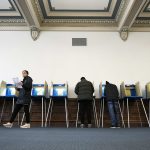A just society: Why Black economic boycotts of the Civil Rights era still offer lessons for today
By Kevin A. Young, Associate Professor of History, UMass Amherst Signed into law 60 years ago, the Civil Rights Act of 1964 outlawed discrimination in the U.S. based on “race, color, sex, religion, or national origin.” Yet, as a historian who studies social movements and political change, I think the law’s most important lesson for today’s movements is not its content but rather how it was achieved. As firsthand accounts from the era make clear, the movement won because it directly hurt the interests of white business owners. The 1955 Montgomery bus boycott, the 1963 boycott of Birmingham businesses,...
Read More















